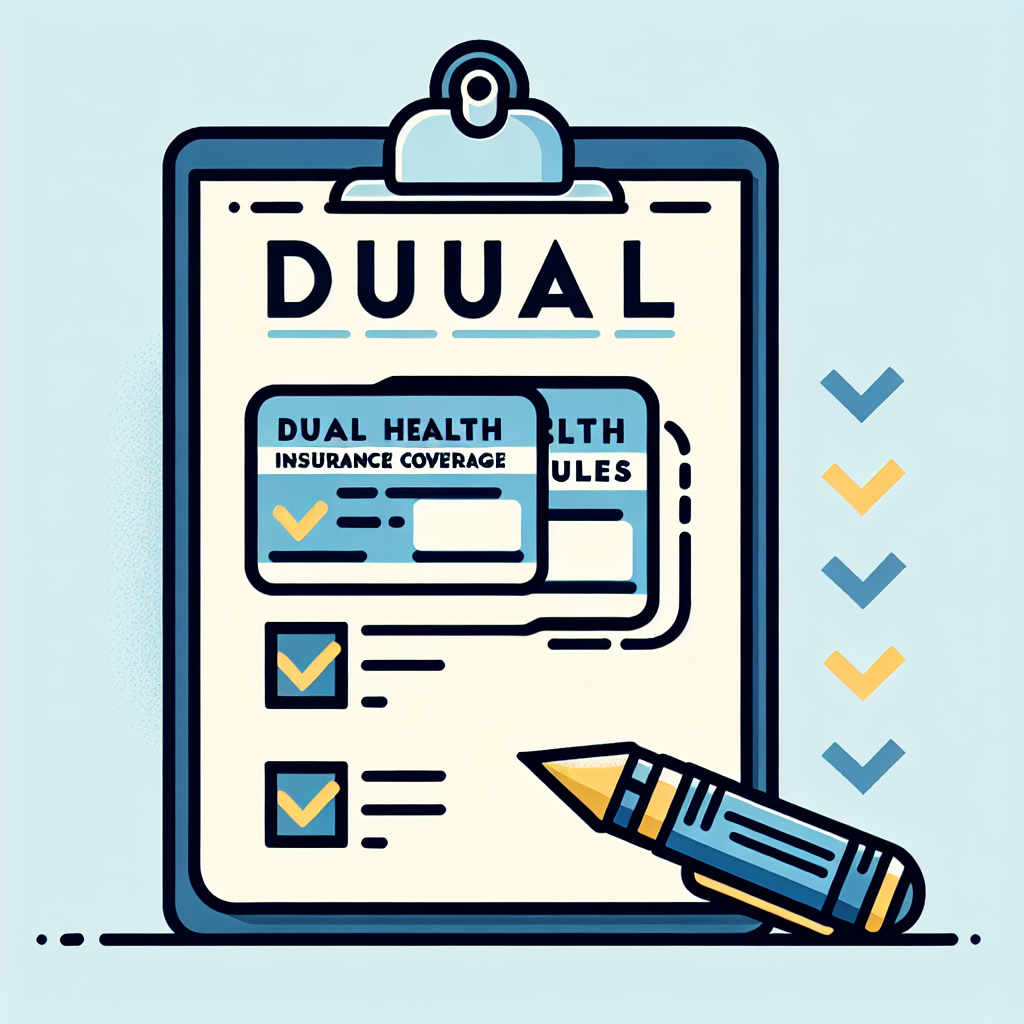Filed under Health Insurance on
Understanding Dual Health Insurance Coverage Rules

Understanding the intricate world of health insurance can be quite a challenge, especially when dealing with dual health insurance coverage. Dual health insurance coverage occurs when an individual is covered by two separate health insurance policies simultaneously. While this might seem complex, having dual coverage can actually provide significant financial and medical benefits, if managed correctly. In this blog post, we'll explore the ins and outs of dual health insurance coverage, unraveling its rules, benefits, and potential pitfalls.
What is Dual Health Insurance Coverage?
Dual health insurance coverage, or dual coverage, refers to an individual being covered under two different health insurance plans. This situation often arises in cases where a person receives insurance through their employer and is also covered under a spouse or partner's policy, or when a child is covered under both parents' plans. The primary objective of dual coverage is to maximize health benefits and minimize out-of-pocket expenses.
How Dual Health Insurance Works
Understanding how dual health insurance works can help you make the most of your plans. Here’s a breakdown of how this process typically operates:
Coordination of Benefits
Coordination of Benefits (COB) is the process used by insurance companies to determine the primary and secondary payer responsibility when an individual is covered by more than one policy. The primary insurance is the plan that pays first after a health care claim is submitted, covering the majority of the costs according to the policy terms. The secondary insurance covers the remaining allowable expenses not covered by the primary plan, potentially reducing out-of-pocket expenses.
Determining Primary and Secondary Insurance
The determination of which insurance is primary or secondary depends on several factors, including:
- Employer Coverage: The insurance provided through your employer is generally primary if you have another policy through a family member.
- Birthday Rule: For children who are covered under both parents' plans, the birthday rule is commonly applied. This rule states that the parent whose birthday falls first in the calendar year holds the primary policy.
- Medicare: If Medicare is involved, Medicare typically becomes the secondary payer after any employer-sponsored health insurance.
Benefits of Dual Health Insurance Coverage
Having dual health insurance coverage can offer several advantages, including:
- Increased Coverage: Enjoy expanded coverage with both plans contributing to your healthcare costs.
- Cost Savings: Reduce out-of-pocket expenses, such as deductibles, copayments, and coinsurance, as costs not covered by one policy may be covered by the other.
- Greater Provider Options: Access a broader network of healthcare providers, making it easier to see specialists or obtain second opinions.
Potential Challenges and How to Overcome Them
Despite the advantages, dual health insurance coverage can also present challenges. Here are some potential pitfalls and solutions:
Complex Claim Processes
Managing claims with two insurers can be daunting. Ensure that both plans’ details are organized and that you keep track of which providers participate in each plan. Submitting claims correctly is crucial to avoid denied claims or delayed reimbursements.
Increased Premiums
Having two plans means paying two premiums. Calculate whether the potential savings outweigh the additional expense. If one policy primarily serves as secondary coverage, the extra premium cost might not be justified.
Service Limitations
Dual plans don’t necessarily mean double coverage for every service. Some insurers have specific rules against covering expenses already paid by another insurer. Review both plans to understand which services are jointly covered and which are not.
Real-Life Examples of Dual Health Insurance Coverage
Consider Lisa, a teacher who receives health insurance through her school district. Her spouse, John, works for a private company offering comprehensive health coverage. Rather than opting for just one plan, Lisa and John decide to keep both policies, each serving as a backup to the other. By doing so, they maximize their benefits and minimize out-of-pocket expenses, such as John's orthotic treatment, which his policy partially covers but is almost fully covered when considering Lisa’s insurance.
Frequently Asked Questions (FAQs)
1. Can I be fined for having dual health insurance coverage?
No, there are no penalties for having dual health insurance coverage. However, ensure that both insurers are informed about your dual status to facilitate the coordination of benefits.
2. How do I submit claims with dual coverage?
Submit your claim to your primary insurer first. Once processed, your provider should send the remaining balance to your secondary insurer. Always check with both insurers on their claim submission policies to ensure compliance.
3. Can dual health insurance cover all my medical expenses?
While dual coverage can significantly reduce out-of-pocket costs, it's rare that all expenses will be fully covered. Remaining expenses after both insurers pay will be your responsibility.
4. What happens if both insurance plans deny a claim?
If both plans deny a claim, review the explanation of benefits (EOB) provided by each insurer to understand the reasoning. It might require providing further documentation, or appealing the decision if you believe the claim should be covered.
5. Can I choose which insurance plan to use for a service?
The primary vs. secondary designation is generally fixed according to the rules governing dual coverage. You cannot typically choose which plan pays first for a specific service.
Dual health insurance coverage can be a powerful tool when used wisely. By understanding the rules and coordinating the benefits effectively, you can take full advantage of this dual safety net, ensuring comprehensive healthcare coverage without unnecessary financial strain.





